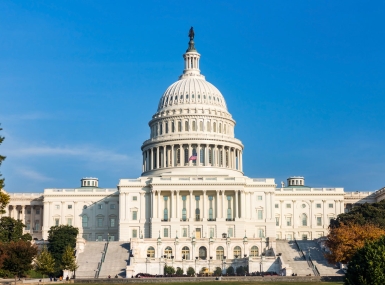Support Continued Revenue Sharing Payments to National Forest Counties

Author

Zeke Lee
Upcoming Events
Related News
Action Needed
Urge your members of Congress to enact a long-term legislative solution for continued revenue-sharing payments to forest counties through the U.S. Forest Service’s Secure Rural Schools (SRS) program. Congress last reauthorized SRS and removed the annual 5 percent funding reduction through Fiscal Year (FY) 2023 in the Infrastructure Investment and Jobs Act (IIJA) (P.L. 117-58) enacted on November 15, 2021. Counties rely on SRS payments to provide numerous critical services including infrastructure, conservation projects, search and rescue missions and fire prevention programs.
Further, Congress should reform forest management practices to improve forest health, increase production and ensure robust revenue sharing to all forest counties.
If Congress fails to renew its long-standing federal obligation to forest counties and to the lands managed by the federal government by not improving forest management and providing a long-term solution for revenue sharing, counties across the United States could face dramatic budgetary shortfalls. The SRS program is currently expired, and as of June 6, forest counties have not received critical SRS payments in 2025. The result is an average 80 percent decline in funding when comparing SRS funds and currently utilized permanent law from 1908.
Background
The SRS program aids rural counties and school districts affected by the decline in revenue from timber harvests on federal lands.
Historically, rural communities and schools have relied on a share of receipts from timber harvests to supplement local funding for education services and roads. During the 1980s, national policies substantially diminished the revenue-generating activity permitted in these forests.
The resulting steep decline in timber sales decreased the revenues that rural counties and school districts received from forest management activities.
In response to this decline, SRS was enacted in 2000 (P.L. 106-393) to stabilize payments to counties and to compensate for lost revenues. In October 2008, SRS was reauthorized (P.L. 110-343) and amended to continue on a sliding payment scale.
SRS was reauthorized on November 15, 2021, for FYs 2021 through 2023. The U.S. Forest Service and the Bureau of Land Management distributed $232 million to over 700 counties parishes and boroughs in April 2024. Additionally, SRS Title III funds may now be used for expanding broadband access in schools.
Barring a long-term solution, SRS will continue to be subject to the annual appropriations cycle and the expiration of SRS will create dramatic budgetary shortfalls if Congress fails to renew this long-standing federal obligation to county governments. Enactment of a sustainable long-term program to share revenues generated from the management of designated federal lands with forest counties and schools will ensure that students receive essential education services and rural communities have critical funding for roads, conservation projects, search and rescue missions and fire prevention programs.
Resource Advisory Committee (RAC) Appointment Pilot Program
In addition to the 3-year extension of SRS, the IIJA created a new Resource Advisory Committee (RAC) appointment pilot program that will allow the U.S. Forest Service Chief or the Bureau of Land Management (BLM) Director to present the Secretaries of Agriculture or Interior with recommended RAC members. The Secretaries will have 30 days to confirm or reject the appointees, who will be automatically appointed if no action is taken within that 30-day period. This is similar to an existing pilot program that allows regional foresters and BLM state directors only in Arizona and Montana to appoint RAC members, which has cut down on waiting periods from two years to a few weeks in most instances.
Key Talking Points
- The budgetary lapse of the Secure Rural Schools and Community Self-Determination (SRS) Act created dramatic budgetary shortfalls for over 700 rural counties across the United States. The current lapse in SRS authorization resulted in an average 80 percent decrease in funding to federally forested counties.
- New legislation that provides forest revenue-sharing payments to counties and promotes active natural resource management for the stability and well-being of forest counties and communities must be swiftly enacted. NACo will continue to urge leadership in both chambers and on both sides of the aisle to work together to enact a long-term, sustainable solution.
- Urge your members of Congress to support and cosponsor efforts around Secure Rural Schools reauthorization immediately. This Congress must act to ensure that forested counties continue to have this crucial funding stream.

U.S. House of Representatives passes SPEED Act and other permitting reform bills
On December 18, the U.S. House of Representatives passed the SPEED Act (H.R. 4776). The SPEED Act would strengthen county involvement in decision-making and make needed commonsense reforms to the federal environmental review process.

House Natural Resources Committee advances the Endangered Species Act Amendments Act of 2025
On December 17, the House Natural Resources Committee advanced the Endangered Species Act (ESA) Amendments Act of 2025 (H.R. 1897). The version passed by the committee adopted several changes from the initial bill and would address key county concerns by improving the implementation of the ESA. The legislation now awaits a floor vote before the whole U.S. House of Representatives.

County Countdown – Dec. 15, 2025
Every other week, NACo's County Countdown reviews top federal policy advocacy items with an eye towards counties and the intergovernmental partnership.